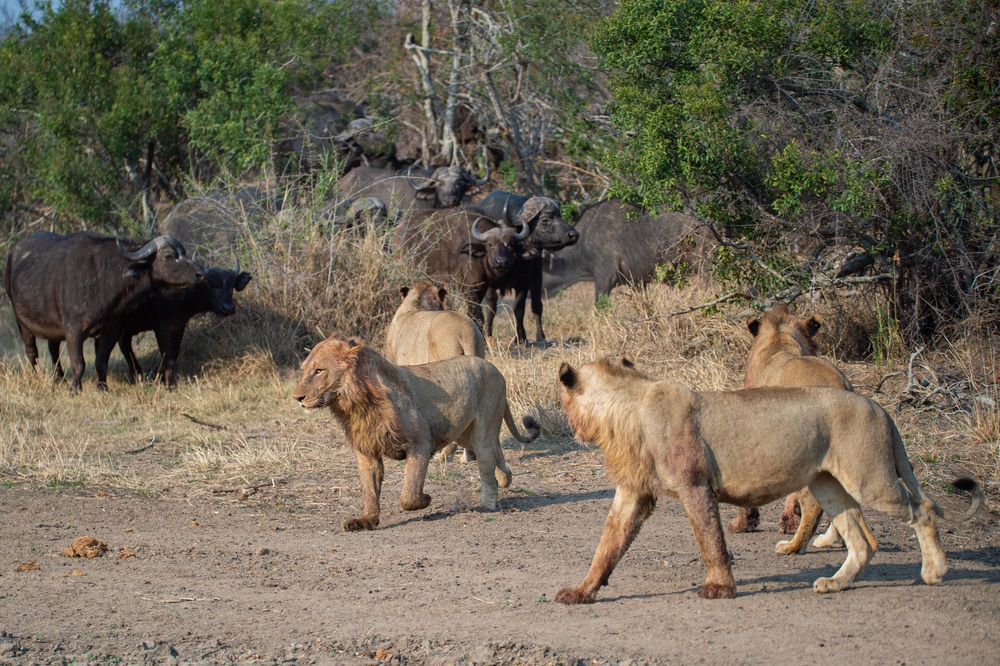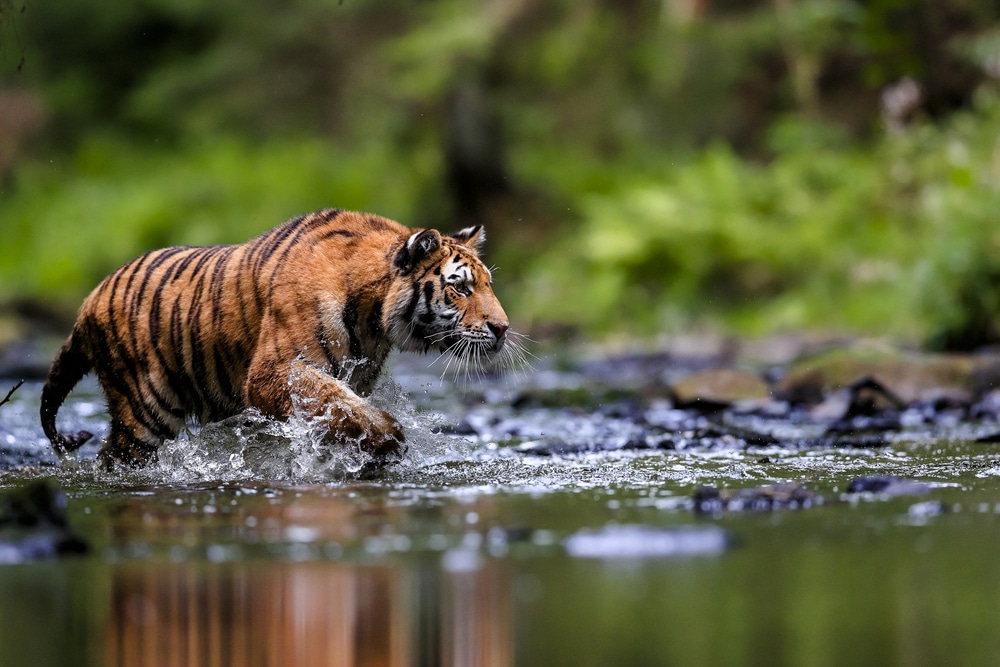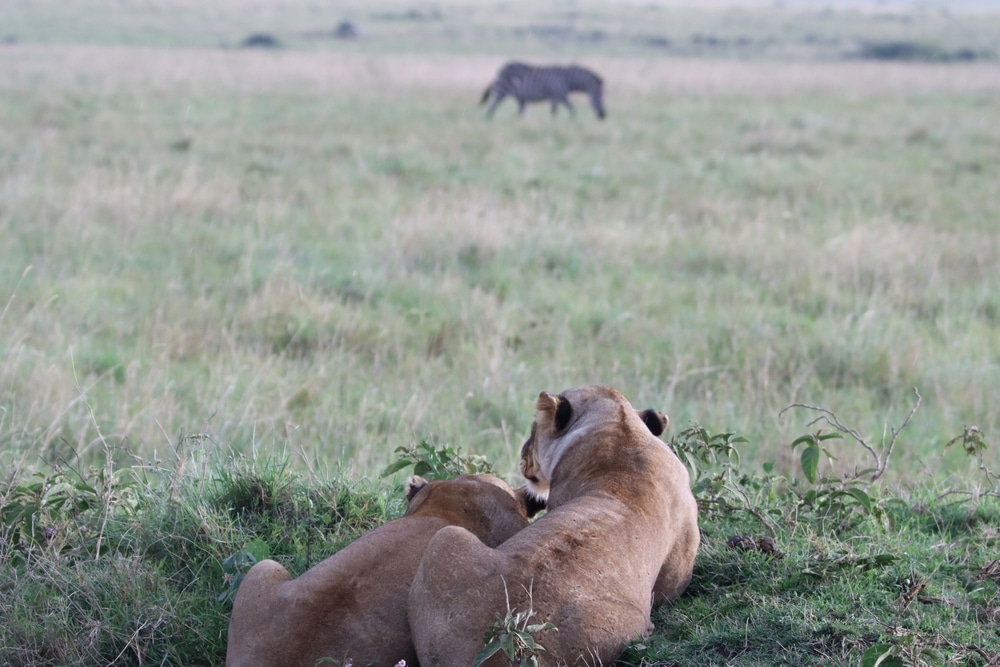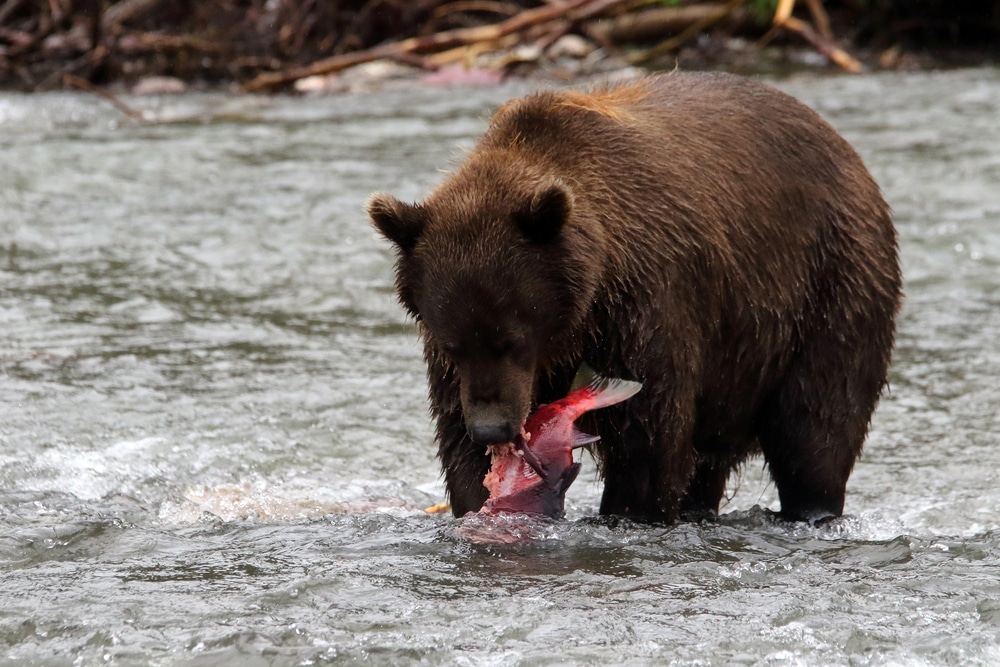

Apex predators like lions, tigers, and bears occupy the highest trophic levels in the food chain. They’re strong, fast, and have few to no natural predators. But what makes them so important isn’t just their power—it’s how they keep everything in balance. Without them, the whole ecosystem could fall apart. In this guide, we’ll explore why this is the case. But first, let’s start with some background.
Apex predators are the top players in the food chain, meaning they’re at the top with no one above them. These animals, like lions, tigers, and bears, have few or no natural enemies. They’re the ones who hunt rather than be hunted.
Their role as hunters might give them an aggressive or fearsome reputation, but this is precisely why they’re important. When they kill prey or instill fear among prey populations, they’re simply acting in a way they have been biologically designed to protect their kind and ensure the ecosystem functions as normal.
Lions, tigers, and bears are some of the most well-known apex predators, but they are far from the only ones. Apex predators come in many forms across different environments, each playing a critical role in their ecosystems.

Apex predators are often called "keystone species" because they’re key to the health of an ecosystem. Their presence helps maintain or even shape the structure of their entire habitat. Let’s explore why apex predators are crucial:
Apex predators are great hunters – and when they hunt and kill large prey, they create "ecological hotspots." That’s because scavengers like vultures and ravens feast on the carcasses. Once they’re done, the remains decay and release nutrients into the soil, enriching it and helping plants grow. These nutrient-rich areas become vibrant spots in the ecosystem, which is great for the plants and animals.
Apex predators keep the populations of smaller predators in check. Without them, smaller predators could proliferate unchecked, leading to overconsumption of prey and disrupting the delicate balance of the ecosystem. This imbalance can cause the decline of various species. For instance, if lions are removed from an area, smaller predators like jackals or hyenas might become overly abundant, exerting excessive pressure on other wildlife populations.
Herbivores might seem harmless, but when left unchecked, their numbers can explode and lead to serious ecological problems. Apex predators target the weaker or sickly animals among these groups. This helps keep the herbivore populations in check and ensures that the healthiest animals survive and can reproduce. This natural selection keeps prey populations healthy and prevents overgrazing, which can destroy food sources and disrupt habitats.

Even though apex predators may not directly target smaller animals, their presence indirectly protects them. The fact that they control the number of larger prey and smaller predators means they prevent these animals from overusing resources or causing harm to the smaller animals. This balance helps maintain a healthy environment for all species.
When apex predators disappear from an ecosystem, the effects can be dramatic and harmful. Here's what tends to happen:
Without apex predators, animals that they usually hunt, like deer or elk, can multiply quickly. These herbivores then tend to overgraze, which means they excessively eat plants and vegetation so the landscape can become almost bare. This destroys their habitat and affects every other species relying on the plants for food and shelter.
A famous example is what happened in Yellowstone National Park. When wolves were removed, the elk population soared, and they ate so much vegetation that the whole park's ecosystem started to change. But when wolves were reintroduced in the 1990s, they started to hunt the elk, bringing their numbers down to a healthier level. This allowed the park's vegetation and overall ecosystem to recover beautifully in a phenomenon known as trophic cascade.

Ecosystems provide humans with essential services like clean water, air, and fertile soil. Apex predators contribute to these services. For example, by controlling herbivore populations, they help prevent overgrazing, which can lead to soil erosion and reduced water quality. Without these predators, these services might be compromised, affecting wildlife and human communities that rely on these natural resources.
The impact of losing apex predators can cascade beyond their immediate environment. For instance, if sharks decline in the ocean, it could increase octopus populations, which in turn might decimate crab populations, affecting fisheries and the communities that depend on them.
Many of the world's top apex predators are under threat, a situation that should concern everyone. The Endangered Species Act plays a pivotal role in protecting these animals, but there's much more that can be done. At Lions Tigers & Bears, we strive to raise awareness and support conservation efforts.We advocate for stronger protections and responsible wildlife management. You can join us in making a difference whether you choose to donate, volunteer, or simply spread the word about our efforts. Every bit of support goes a long way.

Ph: 619.659.8078
Fx: 619.659.8841
[email protected]
24402 Martin Way, Alpine, CA 91901